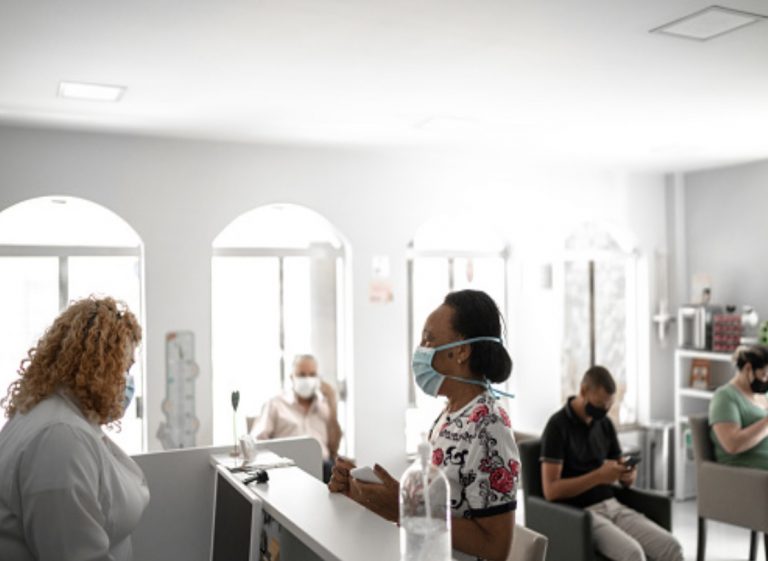Many clinics typically have constant traffic of patients, most times of the day. Sometimes due to contagions in the geographical area of the clinic or an abrupt increase in health-seeking behavior, there is a sudden influx in patient traffic. In some of the cases, the increased patronage gains permanence and suddenly outstretches the clinic resources.
A clinic that previously comfortably served a moderate number of patients is abruptly overwhelmed and, only a matter of time before the quality service standards deteriorate. There are ways you can mitigate the poor service delivery and still keep the patients happy. You can salvage your clinic’s reputation and make optimal use of available resources by implementing certain strategies.
Train Your Staff to React Positively
When staff in any institution get overwhelmed with a sudden spike in service demand, the pressure takes a toll on them. Service provision in a health institution is delicate because it involves serving people in an unwell physical or mental state. Staff who do not handle the pressure well are prone to mishandling patients, subsequently leading to irreparable damage to the clinic’s reputation.
Staff must be well-equipped to handle emergencies despite the upsurge in service demand. You should also train staff on stress management techniques to avoid tension build up negatively affecting service provision. It is also vital that staff have suitable support structures in the clinic if they need help or answers to any questions.
There are several vital tips you can take advantage of to train employees. Such guidelines include developing a training plan, having frequent training sessions, using employees as trainers, training employees on multiple skills, and setting training goals. A training process should be pre-planned and have a clear objective for favorable outcomes.
Always Have Backup Staff
To ensure a seamless service process, clinic managers should have backup staff in case of staff unavailability. The employees whose absence can cause an operational standstill should always have a standby, temporary replacement. Such employees are like general practitioners, surgeons, specialists, etc. You can secure an employee contingency plan by keeping former applicants in file and calling them when the clinic is outstretched or when the staff is indisposed.
To ensure that the staff contingency plan works suitably for the clinic, you should establish a ready list of physicians available within short notice. You should discuss the terms of engagement with the backup staff before admitting them to the list. This pre-planning ensures the alternate practitioner is instantly available when the need arises.
All alternate staff plans should prioritize the interests of the patients and have in mind that the attending physician is only bridging the gap temporarily. It is hence essential to take note of the services the temp should offer. The temp can do assessments or procedural undertakings but not complex processes like surgeries.
Invest in an Enterprise Practice Management System
Manual processes are a bottleneck to efficiency in procedures. A clinic experiencing a sudden surge in patient flow and resources bursting at the seams needs an enterprise practice management (EPM) system. Such a system will automate many repetitive processes and eliminate errors and slowness associated with human processes.
An example of a system used by health institutions to digitize their processes is NextGen EPM software. This software automates repetitive actions like customer billing, known to cause queues in a clinic. Other benefits of having an EPM system include enhanced financial control of the business, decision-making support, reducing tasks requiring re-work, and enhanced customer satisfaction.
Look for Alternatives
In any health institution, supply shortages are frequent, and essential implements like medicines or tools become suddenly unavailable. You cannot control the availability of the tools of the trade. However, you can plan to minimize the negative impact on your clinic operations. The focus on shortage management is seeking alternative solutions to the scarce products.
For a sustainable practice in countering scarcity, there needs to be a comprehensive plan for dealing with and finding solutions to the problem. Such a plan entails options for consideration when a shortage arises, like identifying substitute products and maintaining optimal reorder levels to help the clinic cope in low supply periods. Handling shortages need not be a fire-fighting event every time but a known supplies management function.
Help your Clinic Cope with Patients Influx
Coping with a sudden influx of patients in your clinic does not have to be a nightmare when you have particular measures in place. The bottom line is to assess the situation and come up with the most effective solutions. You should avoid knee-jerk reactions like simply adding resources before an evaluation, as it may be counterproductive.


0 Comments